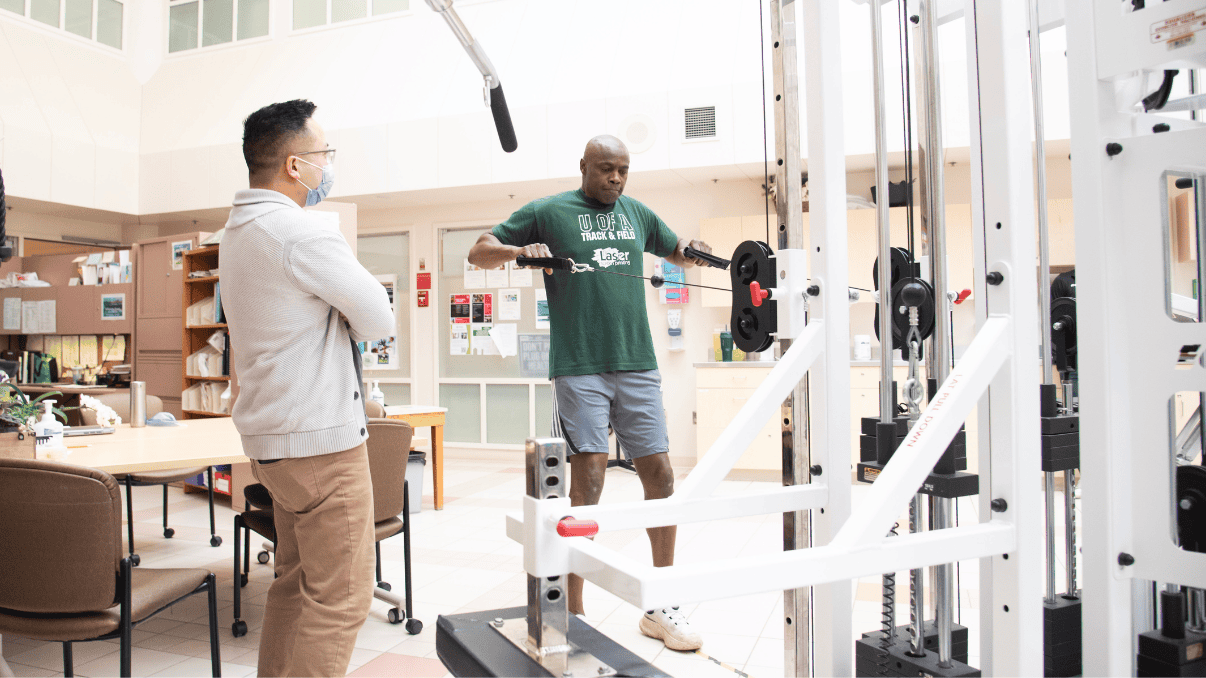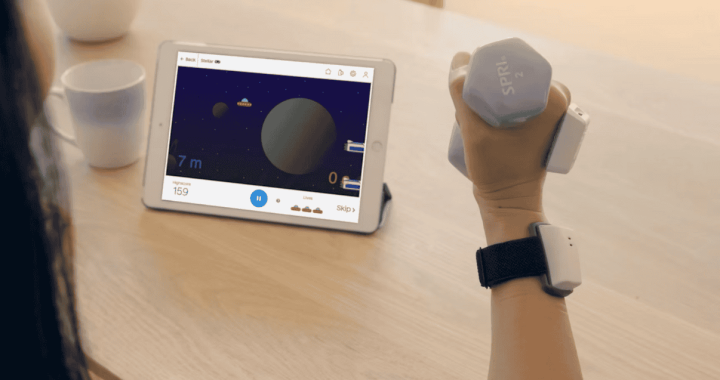After representing Canada internationally, including on the Olympic stage, Oral O’Gilvie never imagined his greatest challenge would come on a golf course.
Recognizing the early signs and acting ‘FAST’ can be what saves a life—or dramatically improves recovery—after stroke.
For Oral O’Gilvie, an elite level athlete, both of these factors made a critical difference when he experienced a stroke in May 2024 after an ordinary day of golf took a sudden and unexpected turn.
The “FAST” acronym is a simple way to remember the signs of stroke: Face drooping, Arm weakness, Speech difficulty, Time to call 9-1-1.
Fortunately, Oral’s golf partner was familiar with these signs, and when he began to slur his speech, Oral was quickly rushed to an acute care facility for further assessment and care.
In a situation as critical as Oral’s, time was of the essence, and for Oral, time was certainly on his side. Within just 45 minutes of his stroke, Oral arrived at the hospital where a CT scan confirmed a clot on the right side of his brain; a clot-busting medication was quickly administered.
The next morning, Oral woke up unable to move or feel the entire left side of his body. Just a day later, he was assessed for the Glenrose Rehabilitation Hospital and admitted shortly after to the inpatient stroke recovery unit.
“When I arrived, I needed two people to help me do anything—walk, shower, use the washroom,” Oral recalled. “But within days, I was up and walking with a cane. At first, I didn’t even want to call it walking. It felt like I was struggling. But the next day, I felt a little stronger. The harder I worked, the faster I started to see things happening.”
For Oral, it felt like being back on a national team training camp. “I had all the support staff ready to make me compete. Everyone from the cleaning team to physical therapists, occupational therapists, speech-language pathologists, and recreation therapists encouraged me to get back to my normal.”
Just four weeks after his admission, Oral walked out of the Glenrose on his own, without assistance. Regaining independence—even in the smallest task—was a powerful turning point.
“Anything that I couldn’t do the day before, is an opportunity to be thankful. A flicker on my arm or leg, I was thankful and excited about.”
And Oral’s recovery continued. Just two weeks after being discharged, Oral returned to the Glenrose as an outpatient continuing with recreational therapy that included swimming, yoga, and pickleball. By fall, he had even regained his driver’s license.
Reflecting on his time at the Glenrose, Oral says it’s been life changing. “I recognize that I’m a beneficiary of a world-class facility in Edmonton. I don’t know if I would be anywhere near where I am if I didn’t have access to the facilities and people at the Glenrose. It’s incredible. Absolutely incredible.”
If you or anyone you know is showing the signs or symptoms of stroke—Face drooping, Arm weakness, Speech difficulty—it’s Time to call for help. Acting FAST can make all the difference in stroke recovery.

